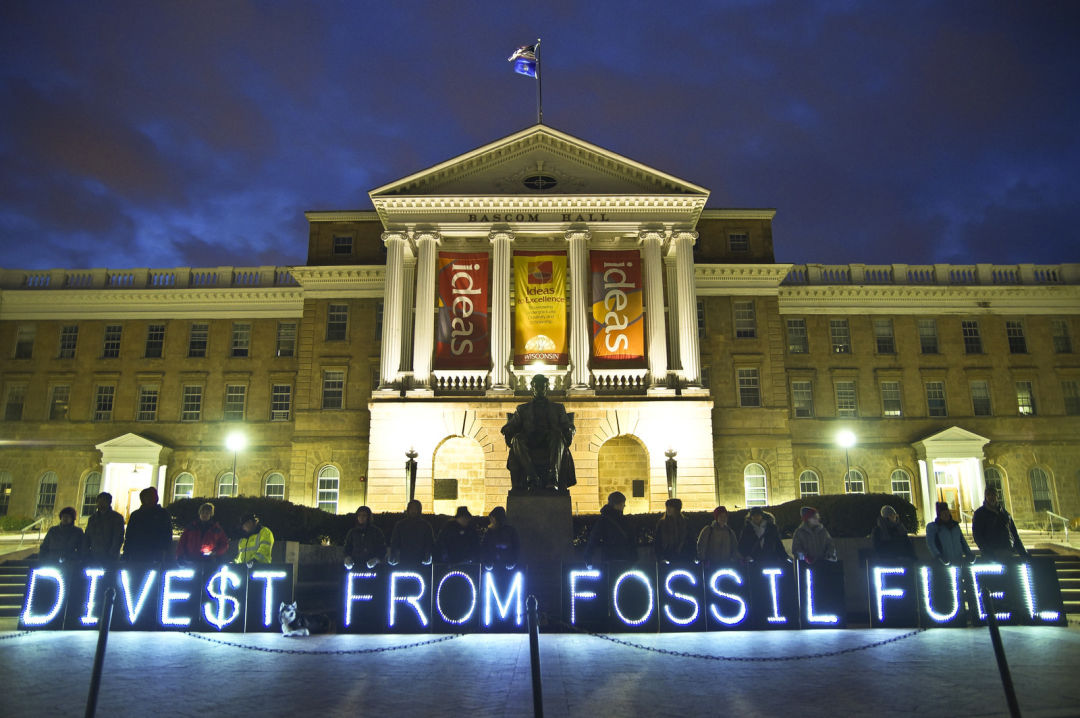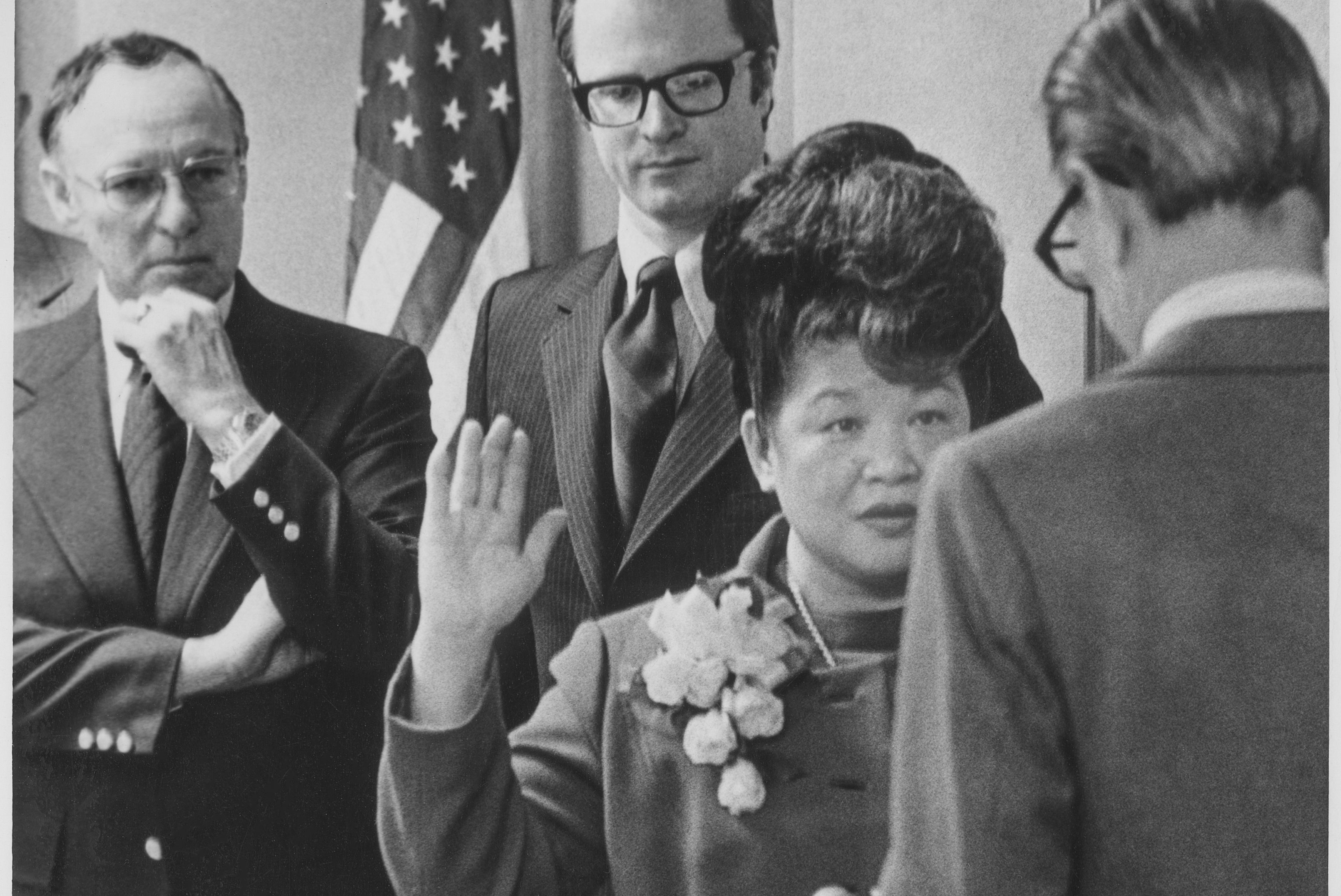City Retirement System Board to Reconsider Divesting from Fossil Fuels

As part of the "Divest from Fossil Fuels UW" movement on the University of Wisconsin-Madison campus in April 2014.
Image: Courtesy of Joe Brusky
Seattle's board that manages the retirement system for city employees will, again, consider divesting $92.2 million in pension funds from fossil fuels.
The Seattle City Employees' Retirement System board—chaired by council member Tim Burgess—unanimously agreed on Thursday to reassess the earlier recommendation not to divest from fossil fuels after mayor Ed Murray sent a letter requesting an updated analysis. The board will discuss results of the assessment July 13.
"Over the last month, I've heard from many Seattleites who have asked about our city's pension system, specifically whether the investments in the system adequately represent the values of the City of Seattle employees," Murray wrote to the board in the letter dated Tuesday. "The advocates and employees I've heard from have made compelling arguments about the need to divest pension investments from fossil fuels, and our exposure to financial risks if we don't do so."
Murray requested that the board reassess the impact of a divestment of fossil fuel holdings, divest holdings from coal companies, and work on developing a fossil fuel-free option for workers' investment portfolios.
The city's pension fund holds $2.48 billion for its 17,000 city employees and retirees, SCERS director Jeff Davis said. As of the end of last year, $16 million worth of the fund's holdings were invested in coal.
Back in 2015 was the last time the fossil fuels divestment was proposed, by then-council member Nick Licata. Burgess said state law in the past has been the major obstacle. The law requires that the board members make decisions for the "sole purpose" of the greatest return on investment for retirees, and last time both the city's advisors and legal counsel discouraged it.
"If we're going to divest as board members, we have to be able to demonstrate that we are making a prudent decision with our fiduciary responsibility," Burgess said.
But proponents of the divestment "will point to other financial analysis that shows the risks remaining in fossil fuels are growing," Burgess said. The city's updated analysis would "see if the playing field has changed.”
Sightline Institute policy director Eric de Place said he thought the mayor played it a little safe by only outright asking for divestment from coal, but that it's a step in the right direction.
Activists wrote to Murray in January requesting the divestment. Northwest Divest cites a financial analysis this year that said SCERS has lost $65 million in the past 10 years by not divesting ($53 million in the past three years).
Though Murray has publicly supported divestment, he was never known to have been heavily involved in its efforts. Murray didn't send a letter of support when Licata proposed the divestment last time in 2015. (And Licata's motion didn't even get a "second" in favor.)
Murray's call for divestment this time follows the City Council’s unanimous decision to boycott the Keystone XL pipeline project earlier this month. It’s also in the middle of his reelection bid when he’s facing allegations of child rape.



